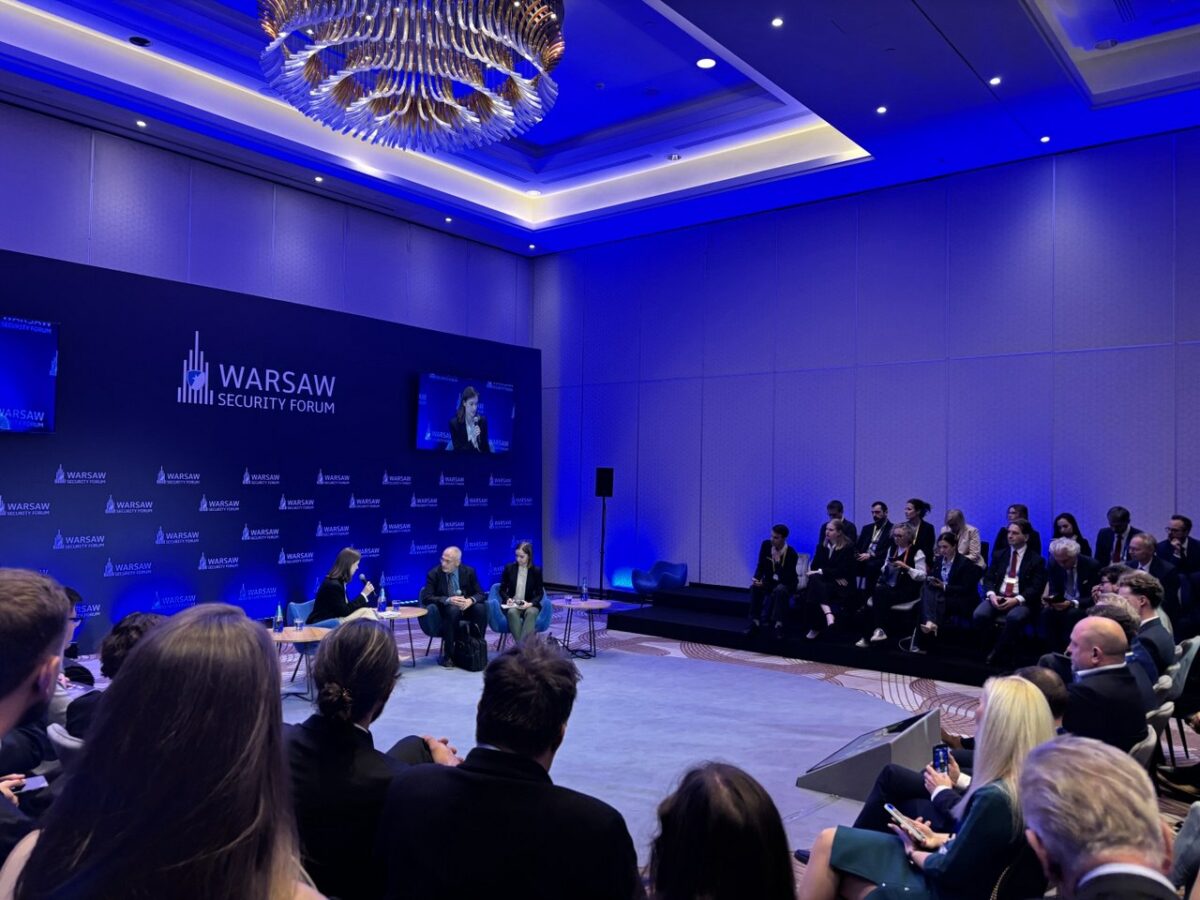Mikhail Khodorkovsky on Warsaw Security Forum 2025
Mikhail Khodorkovsky in conversation with Marta Prochwicz-Jazowska – Deputy Head of Office and Policy Fellow of the European Council on Foreign Relations (Warsaw) about the war, its economic cost, sanctions and the future of Putin’s regime.
Warsaw Security Forum 2025

‘Is Russia Winning or Collapsing? The State of Country and its Society’
Russia’s military production grew 50% since the war began. Sanctions now impact only 10% of the Russian federal budget.
Europe should stop pretending that it can defeat Putin this way and focus on strengthening Ukraine’s negotiating position.
The effectiveness of sanctions has plateaued. Energy sanctions now affect only 10% of Russia’s federal budget. Those still assuming Russia only produces oil and gas are working from a flawed premise. China has replaced Western suppliers and the economic pressure point many in the West counted on never materialised.
Russia’s military production grew 50% in 3.5 years and continues expanding. Shells, drones, and missiles are being produced at rates that dwarf European output. Russia outproduces Europe by factors of 2 to 3 across various weapons categories. Maybe this changes by 2030, but wars are fought today.
The Russian public’s psychology has fundamentally shifted. Initially shocked by the war, they’ve internalised a distorted narrative. 64% want negotiations—but victorious ones.
The propaganda machine successfully erased who started this war from collective memory. Around 30% of the population directly benefits financially from the conflict.
Poland’s response to recent drone incursions exposed Europe’s military readiness crisis. The country intercepted roughly 20% of incoming drones. Ukraine, actively at war, would have stopped 80-90%. Poland is supposed to be Europe’s most prepared frontline state. What does it tell Putin? It invites more border violations.
Western expertise on Russia deteriorated after the Cold War. The U.S. correctly predicted the war’s start (which is a military and technical achievement). But every subsequent Western assessment has been catastrophically optimistic.
Russian experts said sanctions wouldn’t topple Putin; Western capitals insisted they would. The only conclusion one can draw from this is that western analysis has been contaminated by its own propaganda.
Putin maintains a devastating ace: full mobilisation. Currently, Russia recruits about 35,000 people monthly through volunteers, contracts, and limited conscription—essentially an expeditionary war.
Putin can still declare this war ‘a national cause’. He desperately wants to avoid it because it shreds his political authority. But if he makes that call, he can mobilise 300,000 per month. Arming them poses challenges, but the potential is there.
Additional weapon supplies to Ukraine improve its negotiating position but won’t deliver victory at this stage. We know the truth about Tomahawks and so does Putin: maybe 1 in 5 of them reach targets—that’s 200-300 half-ton strikes.
Given Russia’s scale, this is in no way a strategic threat. They are important for Ukraine’s negotiating stance, but don’t ensure a winning posture.
Sanctions work, but they’ve extracted everything they can extract. The next visible result comes in ten years through technical degradation of Russian industry. The decay happens slowly.
The path forward requires honesty.
Watch in full at Warsaw Security Forum YouTube:



